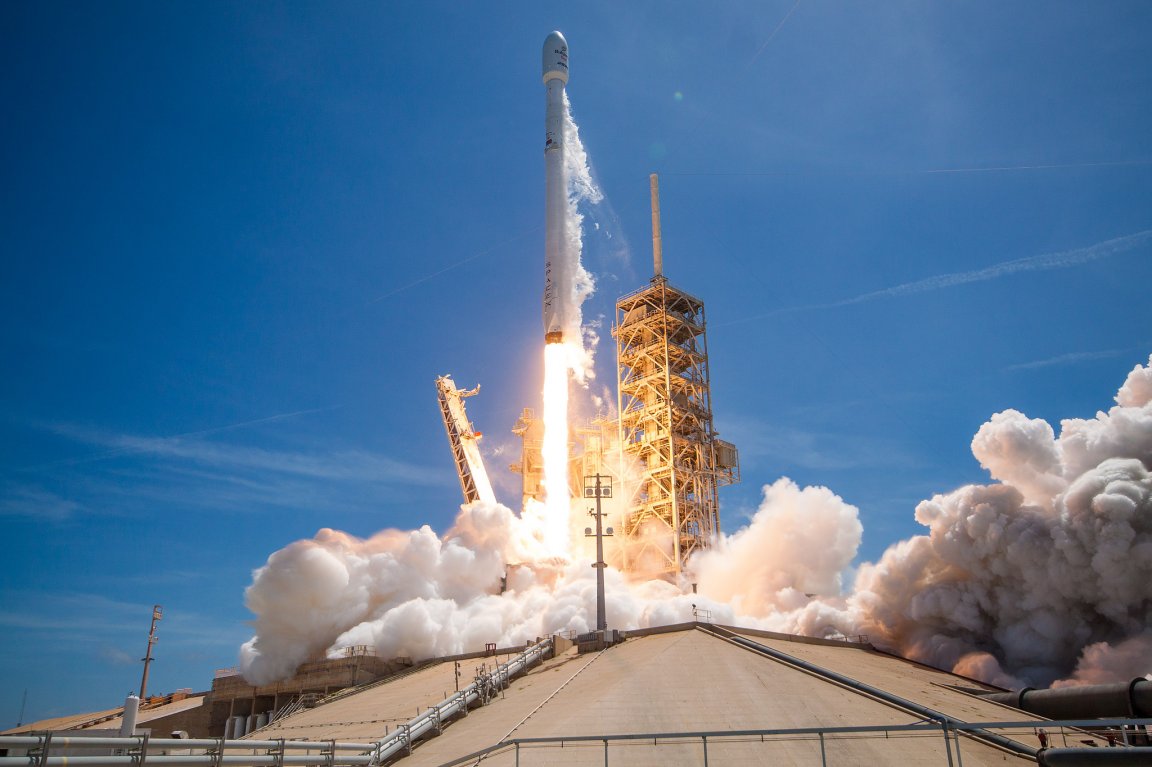
A Different Path to Space
On Monday, August 14, SpaceX launched a resupply mission to the International Space Station (ISS). It was the 12th resupply flight SpaceX has done for NASA as part of its Commercial Resupply Services (CRS) program, and the last one with an unused Dragon capsule. It has also been a month since Elon Musk’s rocket company flew to space, after a series of successful launches earlier this summer. This most recent CRS-12 flight was a special one, both for NASA and SpaceX, but also for the future of space exploration.
A great many recent rocket and spaceflight achievements have been made by commercial space companies like SpaceX and Orbital ATK (formerly Orbital Sciences). Both companies have been running CRS missions for NASA, as well as aeronautics giant Boeing. There’s also Jeff Bezos’ Blue Origin which is also working on reusable rockets, Virgin Galactic with its more space tourism-focused approach, and many more space endeavor focused startups.

NASA acting administrator Robert Lightfoot, Jr. is convinced that these private, commercial companies are actually the future of space exploration — or at least, they’ll make it possible. “Today epitomizes what we have been doing for a long time in terms of building our commercial partnerships,” Lightfoot told Futurism after Monday’s launch. “We are getting to space a little differently than we used to. It’s not just us anymore by ourselves. We’ve got a great partnership with SpaceX. We’ve got a great partnership with Orbital ATK.”
The Survival of Space Programs
While commercial space companies may have their own plans for space exploration — most of which involve returning to the Moon and getting to Mars — it doesn’t mean that NASA doesn’t have plans of its own. In fact, NASA has been working on its own mission to Mars for a while now. The space agency is also currently building its own large rocket. However, recent developments suggest that NASA needs all the help it can get for its programs to survive.
Such a collaboration between NASA and commercial space agencies has been working well, Lightfoot noted. For one, it’s what’s made it possible for the ISS to continue operating. “They have allowed us to keep the space station going and allowed us to do some fantastic research,” he said, referring to SpaceX and Orbital ATK’s CRS missions.
Lightfoot also suggested that these partnerships could do so much more, like sending people to space again. ”SpaceX and Boeing will come along and allow us to fly [a] crew,” he said. “In a couple of years we will get there, and they will be getting crew to the station….this will give us our own access to space.” From there on, the possibilities could be endless.
Indeed, space exploration is entering a new era. It isn’t necessarily ending the era when space agencies were the only ones making giant leaps for mankind — only helping it. Collaboration is the future of space exploration.